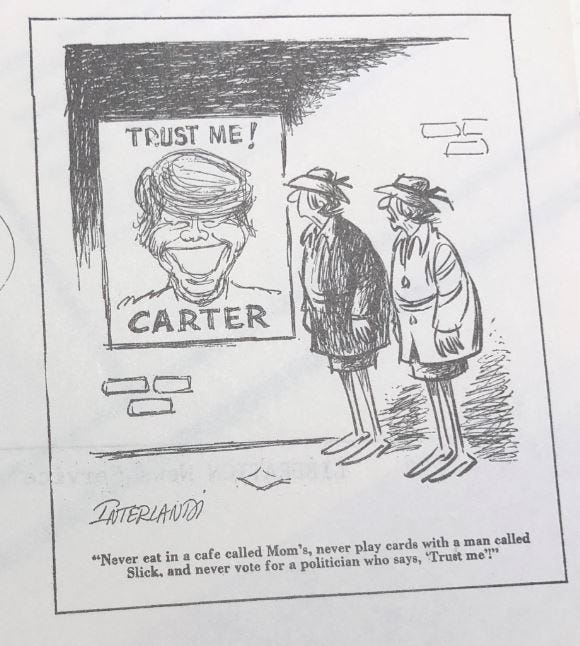Jimmy Carter's Human Rights Legacy in Uruguay
What does a small country in South America offer about reassessing Carter's overall human rights policies?
Foreign Policy Research Institute is a Philadelphia-based, non-partisan think tank. Yesterday, they published a piece I wrote in the days after hearing about Jimmy Carter’s decision to forgo further medical treatment and enter hospice. It’s been a few weeks since that decision, but Uruguay endures as a unique example into what a typically-considered ‘non-strategic’ country offers presidential administrations in terms of implementing innovative policy measures. Their editor helped me put together the tl;dr version up front, which I have pasted below into the newsletter with the lovely addition of my own photos from the archives. But, if you want the full version (with material pulled from chapter three in Of Light and Struggle), take a look at the link!
Bottom Line:
President Jimmy Carter was the first president to integrate human rights into US foreign policy, but his efforts received a mixed reception from the foreign policy establishment (see the political cartoon below, for instance, from Amherst College archives about overall skepticism towards the president).
The Carter administration focused its policies toward Uruguay—a dictatorship that was known as the “torture chamber of Latin America”—around a human rights strategy. Washington cut aid to the Uruguayan military, publicly and privately condemned human rights abuses, and supported opposition groups.
While it’s hard to precisely measure the effectiveness of the Carter administration’s human rights strategy in Uruguay, there’s reason to believe that the approach was one factor that eventually contributed to the country’s democratic transition that began several years after Carter had been voted out of office.
Carter’s policy towards Uruguay also offers a window into the importance of human rights in US foreign policy, and the role that small states can play as a testing ground for innovative policies outside the headlines.
(From WOLA archives at Duke University)
https://www.fpri.org/article/2023/03/jimmy-carter-and-the-torture-chamber-of-latin-america-examining-a-human-rights-legacy/





